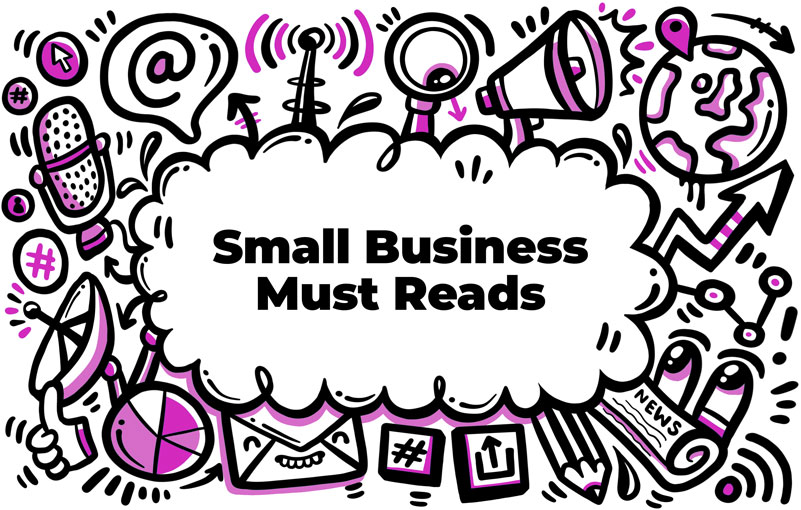The digital landscape is constantly evolving, and businesses of all sizes must adapt to stay competitive. As a small business owner, you are no stranger to the importance of having a strong online presence. But have you ever considered how your website’s accessibility plays a role in your success? In this article, we will explore the importance of website accessibility for small businesses, and explain why making your site more inclusive is not only the right thing to do but also a strategic decision that can positively impact your bottom line.
What is Website Accessibility and Why Does It Matter?
Website accessibility refers to the practice of designing and developing websites that can be used by everyone, regardless of their abilities or disabilities. This includes people with visual, auditory, cognitive or motor impairments, as well as those using various assistive technologies to navigate the web.
Inclusive design is not only a moral responsibility but also a legal one. The UK Equality Act 2010 mandates that businesses ensure their websites are accessible to all users. Non-compliance can lead to fines and lawsuits, causing unnecessary financial strain on your small business.
Furthermore, having an accessible website can significantly broaden your customer base, as millions of people worldwide live with disabilities. By making your website more inclusive, you are opening your doors to a wider audience, increasing your chances of attracting new customers and retaining existing ones.
Boosting Your Brand Image and Reputation
Prioritising accessibility demonstrates to your customers that you care about their experience and that you value inclusion and diversity. By making your website accessible to all users, you are sending a strong message about your brand’s commitment to social responsibility. In turn, this can lead to positive word-of-mouth, increased customer loyalty and a better overall reputation for your small business.
Enhancing SEO and Visibility
Another often-overlooked benefit of website accessibility is its impact on search engine optimisation (SEO). Many of the best practices for accessibility, such as using descriptive alt text for images, providing transcripts for audio content, and employing a clear, logical content structure, also improve your website’s SEO.
Search engines like Google reward websites that adhere to accessibility guidelines, making it more likely that your site will appear higher in search results. This increased visibility can lead to more traffic and ultimately, more customers for your small business.
Improving the User Experience for All
Accessible websites tend to be more user-friendly overall, benefiting not only users with disabilities but all visitors to your site. By implementing accessibility best practices, you can create a better browsing experience for everyone. For example, clear navigation, consistent layout and easily readable text not only aid users with disabilities but also make your site more enjoyable to navigate for all users.
This improved user experience can lead to longer site visits, higher engagement and ultimately, more conversions, directly impacting your small business’s bottom line.
Getting Started with Website Accessibility
If you are ready to make your website more accessible, there are several resources available to help you get started. The Web Content Accessibility Guidelines (WCAG) provide a comprehensive set of recommendations for creating accessible web content. By following these guidelines, you can ensure that your website meets the necessary accessibility standards.
Additionally, you can consult with accessibility experts or hire a web design agency that specialises in creating inclusive websites. These professionals can help you identify and address any accessibility issues on your site, ultimately ensuring that your small business is truly accessible to all.
Regularly Assess and Maintain Your Website’s Accessibility
Website accessibility is not a one-time task; it is an ongoing commitment. As you add new content or update your site, it is essential to ensure that these changes also adhere to accessibility guidelines. Regularly auditing your website for accessibility issues is crucial in maintaining an inclusive online presence.
There are various automated accessibility testing tools available to help you identify potential issues on your site. While these tools can be useful in detecting some problems, they may not catch everything. Therefore, it is essential to also involve real users with disabilities in the testing process. By gathering feedback from diverse users, you can ensure that your website remains accessible and user-friendly for all.
The Competitive Advantage of Accessible Websites
Embracing website accessibility can provide your small business with a competitive advantage. As more consumers prioritise companies that demonstrate a commitment to inclusion and social responsibility, businesses with accessible websites will stand out in the market.
Moreover, by catering to the needs of users with disabilities, you can tap into a largely underserved market, potentially resulting in increased sales and customer loyalty. Accessible websites also provide a better user experience for all visitors, which can lead to higher engagement and conversion rates.
In conclusion, website accessibility is an essential aspect of today’s digital landscape, and small businesses can no longer afford to overlook it. By making your website accessible, you can protect your business from legal risks, enhance your brand image, improve SEO, provide a better user experience, and ultimately gain a competitive edge in the market.
By staying informed about accessibility best practices, regularly assessing your website, and making a commitment to inclusivity, you can ensure that your small business is accessible to everyone. In doing so, you will not only be making a positive social impact but also paving the way for your business’s continued growth and success.



